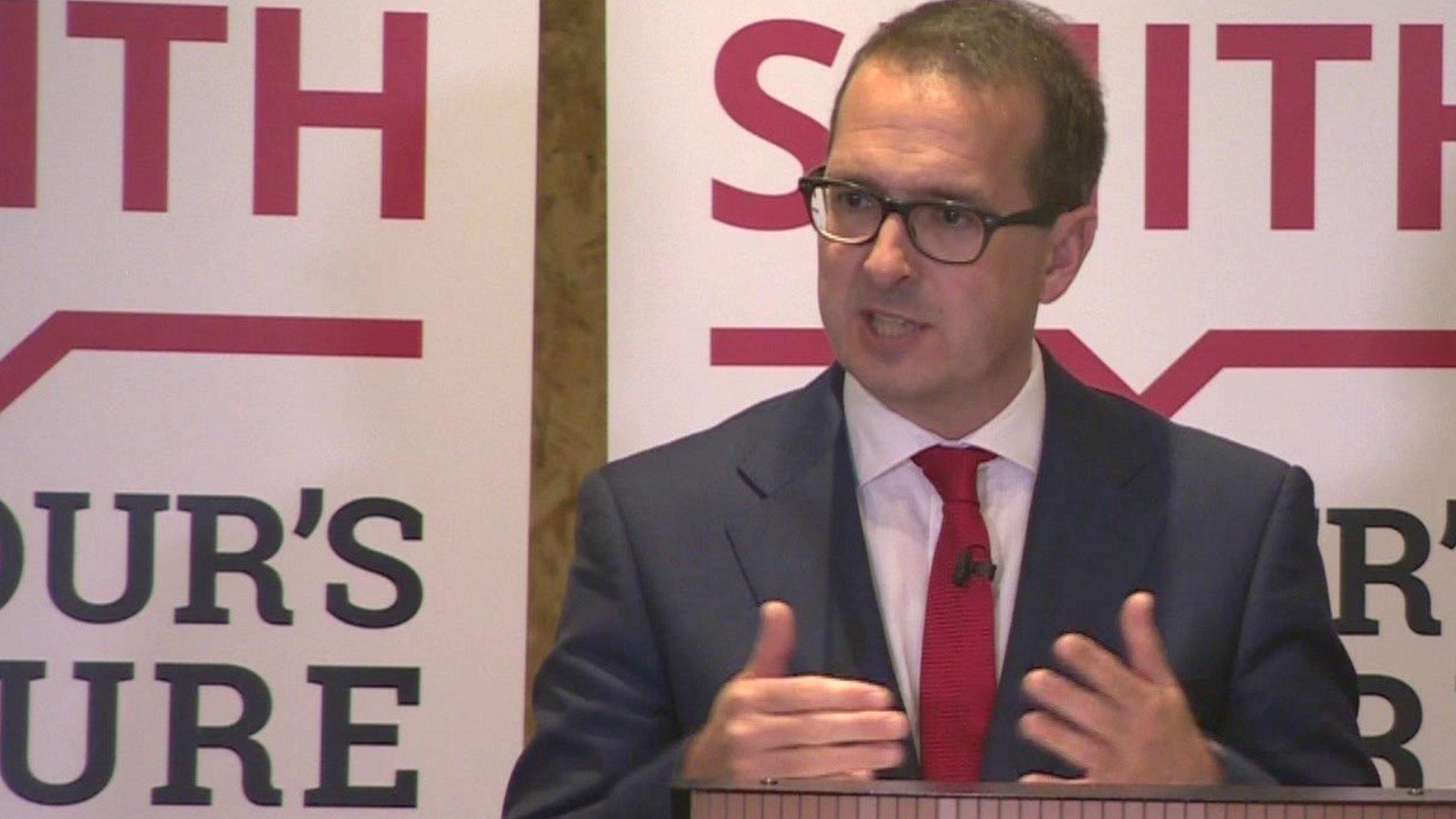Jeremy Corbyn team accuses Tom Watson in Trotsky row
- Published
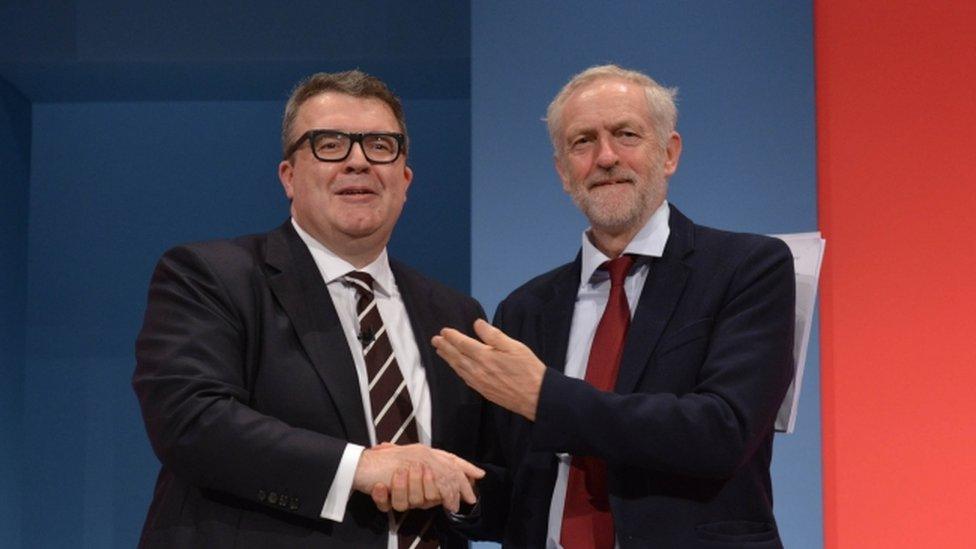
Labour's deputy leader Tom Watson has been accused of "peddling baseless conspiracy theories" by Jeremy Corbyn's leadership campaign.
It came after Mr Watson told the Guardian, external Labour was being infiltrated by "Trotsky entryists" who had "come back" to bolster Mr Corbyn.
Mr Corbyn's campaign team said he should be trying to "unite" the party, rather than "patronising" members.
The Labour leader is embroiled in a contest with challenger Owen Smith.
Former Labour leader Ed Miliband earlier announced he is supporting Mr Smith in the contest, the outcome of which is due on 24 September.
There has been Labour in-fighting over the massive influx of new members that have signed up to the party since Mr Corbyn became leader last September, under new rules introduced by Mr Miliband.
'Disaster'
Mr Corbyn's supporters have repeatedly faced claims by "moderate" Labour MPs - always firmly denied - that they are attempting to take over the party and transform it into a revolutionary socialist movement, in the way that the secretive Militant faction tried to do in the 1980s.
Momentum - the grassroots network that supports Mr Corbyn - insists they are trying to democratise the party's structures and give ordinary members more of a say.
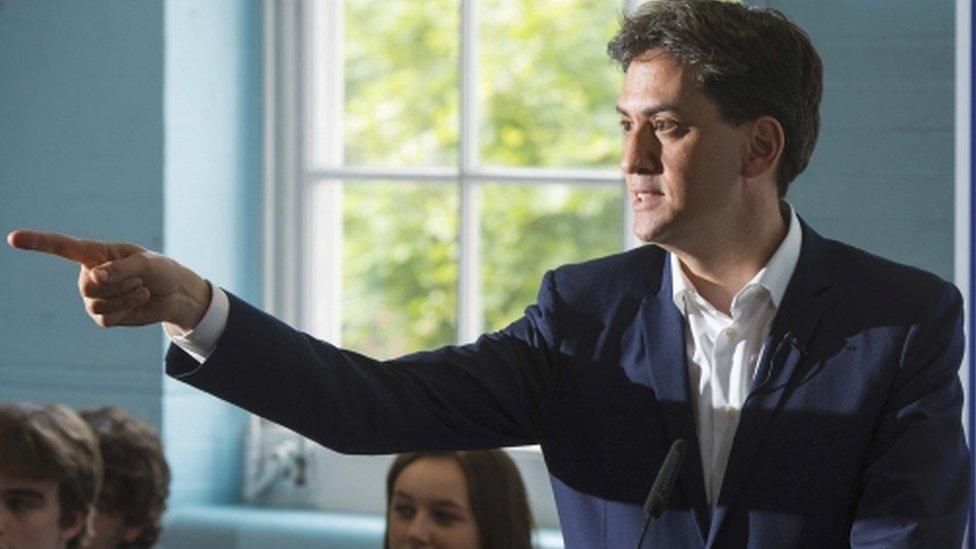
Ed Miliband said Owen Smith was the candidate best placed to rise to the challenge of Brexit and unite the party
Mr Watson said he did not believe that the "vast majority" of Labour members that have joined the party are "all Trots and Bolsheviks".
But he added: "But there are some old hands twisting young arms in this (leadership) process, and I'm under no illusions about what's going on.
"They are caucusing and factionalising and putting pressure where they can, and that's how Trotsky entryists operate."
"Sooner or later", he added, "that always ends up in disaster. It always ends up destroying the institutions that are vulnerable, unless you deal with it."
Mr Watson said the "Trots" did not have the party's "best interests at heart", but saw it as a "vehicle for revolutionary socialism" and were "not remotely interested in winning elections".
'Patronising'
A spokesperson for the Jeremy for Labour campaign, which is being led by shadow chancellor John McDonnell, said Mr Watson's remarks were "disappointing" and Labour members wanted a "politics of hope" rather than "Project Fear".
"Rather than patronising members and peddling baseless conspiracy theories about 'Trotsky entryists', he should be working with Jeremy to unite our party so that we can get back to campaigning to dislodge this Tory government, and help elect a Labour government in its place," the spokesperson added.
But Mr Watson told BBC News: "In my interview with the Guardian I made it clear that many members of Momentum are motivated by a desire to see political change and build a more equal society.
"John McDonnell has consistently made it clear that everyone in our party must be free to express their opinion and be heard respectfully without fear of being shouted down, which is why I simply don't believe he approved these intemperate words from Jeremy's campaign."

What is a Trotskyist?
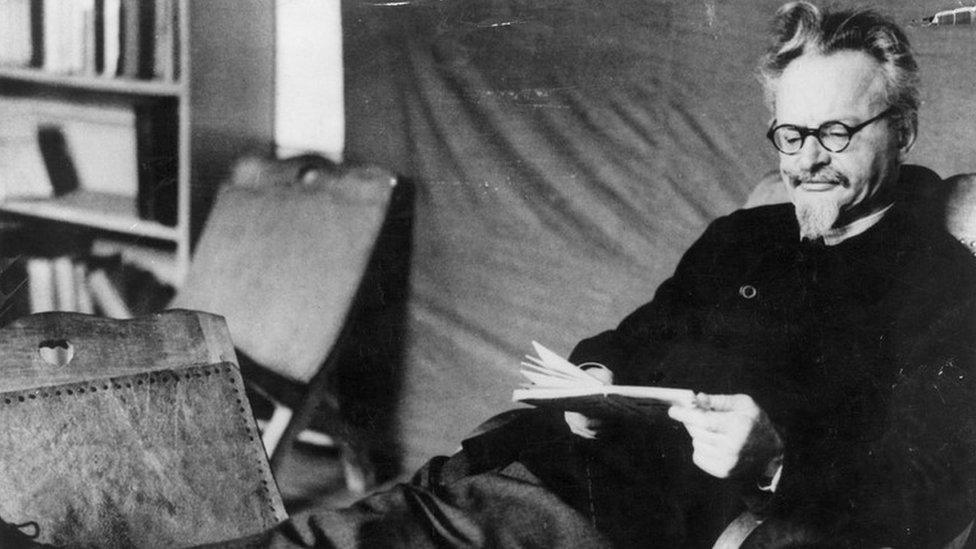
Trotskyism has its origins in early 20th Century Russian politics and the path pursued by one of the founders of the Soviet Union, Leon Trotsky.
Trotsky was the head of the Red Army and a key player in the violent revolution that toppled the Russian tsar and established the world's first socialist state.
But he split with the other revolutionary leaders Lenin and Stalin, who believed they could create a socialist society in their own country without a world revolution.
Trotsky believed his country could achieve socialism only if the working classes around the world rose up as one to overthrow the ruling classes - the doctrine of "international socialism".

In a further signs of the deepening rift in the party, Mr Watson also revealed in the Guardian interview that he now has little contact or communication with Mr Corbyn, bar the "odd text" - mainly about "family stuff".
He has called for Labour to replace the "one member, one vote" system in Labour leadership elections with the old electoral college system - which gave a block vote to MPs, unions and members. He also wants MPs - not the party leader - to choose who to sit in the shadow cabinet.
'Desire for change'
Meanwhile, six supporters of Mr Corbyn won a clean sweep in elections to the party's ruling National Executive Committee on Monday, giving the Labour leader a majority on the body.
All six places in the section voted for by constituency parties went to members of Momentum. However, these NEC elections have no bearing on the leadership contest itself.
Blairite group Progress and Labour First, which represents "moderate" Labour members, did not get their candidates elected in the section, but Labour First saw two of its candidates elected in the local government section.
A spokesman for Mr Corbyn's leadership campaign said the results showed "a desire for real and genuine change in our party".
The NEC consists of the Labour leader, deputy leader, frontbenchers, trade union representatives, constituency party representatives, councillors and members of the Parliamentary Labour Party.
It is the body that governs the Labour Party, but its relationship with the leadership has been under strain in recent months.
The NEC's Procedures Committee is to appeal a High Court ruling giving recent members a vote in its leadership contest between Jeremy Corbyn and Owen Smith - a decision which has been attacked by Labour shadow chancellor John McDonnell and other allies of Mr Corbyn.
- Published10 August 2016
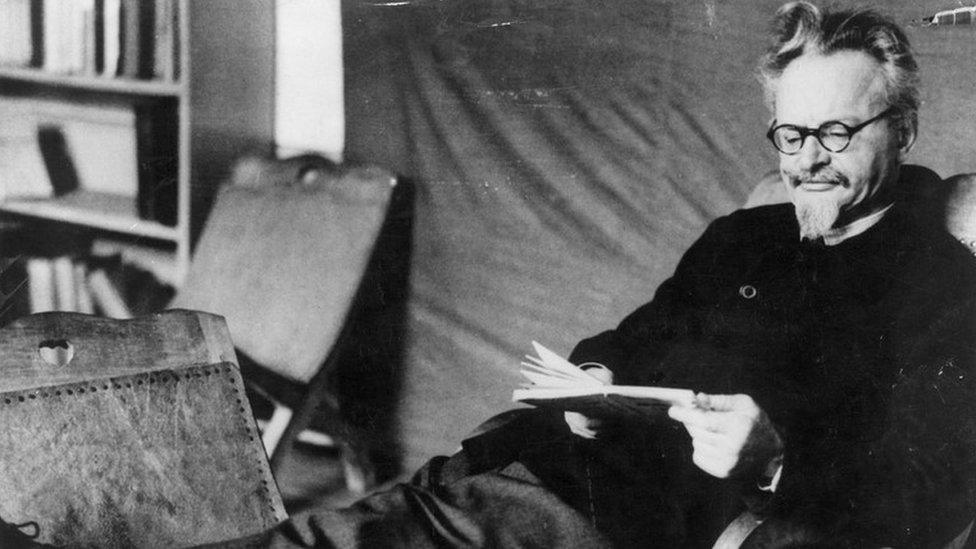
- Published8 August 2016
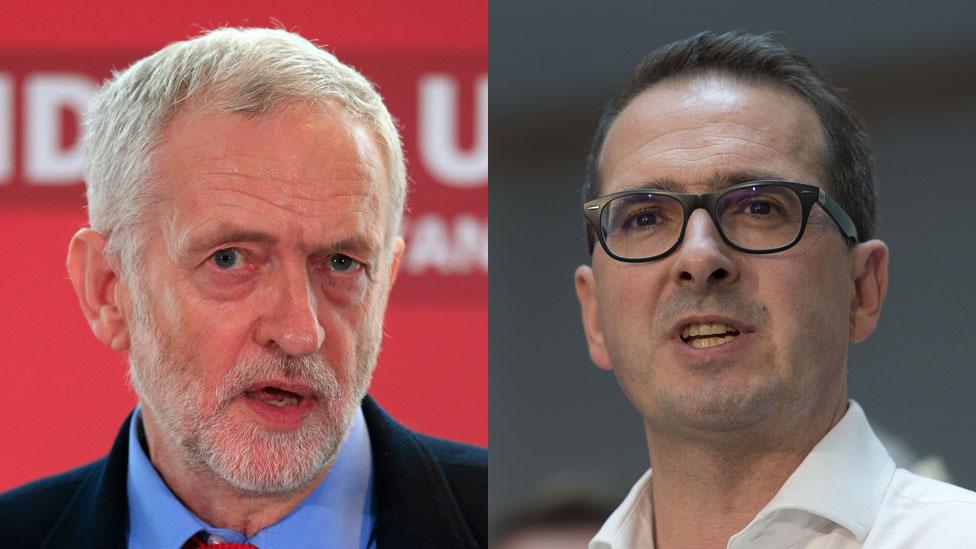
- Published8 August 2016
